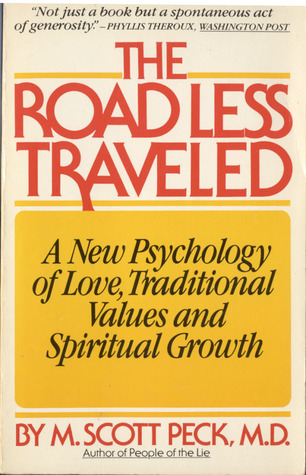Spiritual Practices for the Pandemic - Mathilda Navias
Spiritual Practices for the Pandemic
by Mathilda Navias on June 1, 2020

Illustrations © Good Studio
I’ve been on a lot of videoconference meetings recently with Quakers, including my meeting’s Sunday worship, committee meetings, connecting with the Friends in my School of the Spirit program, and a lot of check‐ins where people share how they’re doing in body, mind, and spirit.
I’ve noticed two trends: most Friends are feeling anxious and stressed. We’re experiencing a collective, global trauma, made particularly difficult by its prolonged nature, the total uncertainty that lies before us, and forced changes in our lives. Some are dealing with very stressful work situations, others with looming financial disaster. And we’re responding with recognizable symptoms such as being unable to fully process a lot of what’s going on, or feeling kind of numb or fuzzy‐minded. I’m told that these are normal reactions. I assume that extroverts are having a particularly hard time because of physical distancing, and all of us are missing being with friends and family, especially when they are in the hospital or a nursing home. On the other hand, a few Friends are feeling buoyant, that this is the best thing that’s happened in a long time, happily tucked up in their own nests. They are relishing the solitude and free time. I assume they are introverts who don’t mind the isolation as much.
My heart goes out to Friends who are feeling the stress. It can help if we understand that we are reacting to a traumatic situation. It’s also helpful, given the circumstances, for us to give ourselves some slack. Be gentle with yourself. Don’t criticize yourself for not being up to your usual standards. Be merciful with yourself. And give others some slack, too.
It makes us feel better if we can do something constructive, rather than just whiling away the time or focusing on our worries. Creating something is a mood booster. Being out in nature helps, like gardening and talking walks in a natural setting. People are catching up on household projects. Finding a way to contribute to your community helps everyone: many people are making masks for health workers or neighbors; there are lots of patterns on the web. For donating masks to health workers, first check with the facility to find out exactly what they need. Additional ideas for helping in your community can be found at idealist.org/en/careers/help-others-coronavirus. With massive unemployment, food banks in particular need donations of food and money; you can check to see if ones around you also need volunteers. Simply keeping yourself safe contributes to everyone’s health.
Along with anxiety, many of us have a lot of free time on our hands. I’ve been thinking about what in our Quaker tradition might help us cope. And it occurred to me that something that might help is to adopt a spiritual practice or two. Why not take the opportunity to make this a time of spiritual growth, which might also help relieve anxiety?
I’ve been practicing and hearing about a variety of spiritual disciplines off and on for the past 20 years or so as part of Lake Erie Yearly Meeting’s Spiritual Formation program, first as a participant, then as a member of the planning committee, and finally as clerk of the planning committee. One component of the program, which runs during the school year, is for each participant to choose a spiritual discipline for the year.
I have found some practices that help me stay grounded through the day and that help me feel more in touch with the Divine. I have also experienced spiritual growth. I’ve heard other Friends report on benefits, things like, “I can go peacefully to sleep at night” and “I feel more in touch with God.” Other benefits that people experience include (no promises, of course): being more open to the Spirit; increased resilience; awareness that there’s more than just the immediate moment; and a deeper connection with the source of life, which can show up in all sorts of ways.
So what’s a spiritual practice? It’s an activity you do that deepens your spiritual life, and it can be almost anything. Possible activities vary widely and include ones while sitting down or moving; reading and reflection; journaling; and prayer. A number of spiritual practices are listed below. Each is described briefly. More information on most of them is available on the web and in books.
Before beginning any spiritual practice, it is good to take a few deep breaths to ground yourself. Breathing deeply causes a physiological response that gets us out of our lizard brain (“fight or flight”) to the reasoning parts of our brain and can help us to connect to Spirit.
 Prayer and Contemplation
Prayer and ContemplationCentering prayer. Choose a meaningful word to focus on with the intention to consent to God’s presence and action. Sitting comfortably and with eyes closed, settle briefly and silently introduce the word. When you become aware of thoughts, return ever so gently to the word. At the end of the prayer period, remain in silence with eyes closed for a couple of minutes.
Gratitude. Express your gratitude in your mind, out loud, or in a journal. This is especially good to do first thing in the morning. Don’t allow yourself to be sarcastic—search for things you genuinely appreciate once you think of them: the people in your life; spring; your meeting community.
If you are having trouble sleeping, try listing things you’re grateful for, starting with A and continuing through the alphabet.
Guided meditation. As you settle into stillness, allow yourself to be directed by a recorded voice. The University of California, Los Angeles has a webpage with free guided meditations, in both English and Spanish, at uclahealth.org/marc/mindful-meditations. There are also a number of meditation apps available for your smartphone or mobile device. Two of the most popular paid versions are Headspace and Calm.
Holding in the Light. Hold the people you care about, your community, the conditions in the world, or anything else that could benefit from God’s healing or comforting touch in the Light. Many Friends do this by envisioning a source of light either overhead or from the side shining on the person, people, or situation.
Practicing awareness of the presence. Center down: turn your attention away from daily activities; empty your mind of daily cares. Take a deep breath and relax. Sit quietly and allow your mind to empty. Notice when you become aware of God’s presence or a deeper sense of being.
Practicing compassion. Spend some time allowing yourself to remember when you have not met your own expectations. Feel compassion for this person who is doing their best under the circumstances. Then allow yourself to remember when another person has not met your expectations. Feel compassion for this person who is doing their best under the circumstances. In your daily life, when your expectations are not met, extend compassion to the person, whether it’s yourself or someone else.
A prayer. From me to you: “May you get what you need to be healthy and whole.” Now you try: “May _____ get what they need to be healthy and whole. May I get what I need to be healthy and whole.” The intention here is for spiritual rather than physical health and wholeness.
Praying. Prayer is communication between you and the Divine. It can take the form of a set prayer like the Lord’s Prayer, or, more usual for Quakers, it can be words you use to tell God of your condition or to ask for something, or a wordless state of connection with the Divine. Remember that communication can be two‐way, both from you to God and from God to you. Leave time and open yourself to the possibility of divine input.
Seeking divine guidance in whatever way works for you. When faced with a decision, I’ve adopted the habit of saying, “So, God, what do you think?” Other words you can use are “Show me the way.” Or you can do it without words—just open yourself to the Divine and enter a period of expectant waiting.
Silent grace. Just before you begin eating a meal, take a few minutes to bring to mind your gratitude or to silently feel God’s presence. You may hold hands with others at the table if you wish.
Spending time in nature. In most places in North America, you can still get into parks or other natural places. Check with the town or city you live in to make sure. Taking a walk or just sitting while observing plants, animals, and insects can bring refreshment and lighten your heart.
Walking a labyrinth. First you have to have a labyrinth available, or create one yourself. Entering the serpentine path of the labyrinth, walk slowly while quieting your mind and focusing on a spiritual question or prayer.
Walking meditation. Walk a bit more slowly than usual. Relax and let your walking be easy and natural. Pay attention to your body. Feel each step as you walk. When you reach the end of your path, pause for a moment. Center yourself, carefully turn around, and pause again so that you can be aware of the first step as you walk back. You can experiment with the speed, walking at whatever pace keeps you most present. Continue for 10 to 20 minutes.
Yoga or Tai chi. There are many classes and videos available online.
 Shifting Awareness
Shifting AwarenessCultivating an awareness of beauty. Intentionally spend some time looking at something you find beautiful: some artwork; flowers; a photograph. Just be with it. Notice its details. Then, as you go about your daily life, notice and appreciate when you see something beautiful.
Cultivating a sense of wonder and awe. Intentionally spend some time in the presence of something you find wonderful or awesome: a baby (long distance); seedlings popping out of the ground; birds wheeling in the sky. Just be there. Notice your feelings and let them expand. Then, as you go about your daily life, notice when you encounter something wonderful or awesome.
Eating mindfully. Pay close attention to flavors and sensations as you eat slowly. There’s a good description at gaiam.com/blogs/discover/zen-your-diet.
Listening to meditative music. Come to inner stillness while listening to music that you find meditative. If thoughts come up, let them pass away again, unless they are of spiritual import.
 Supporting One Another
Supporting One AnotherFaithfulness groups (long distance). For Friends who are seeking to faithfully follow divine guidance in service, witness, carrying out a ministry, or following a leading, creating or joining a faithfulness group helps keep you and other members accountable. For guidelines, search the web or contact Marcelle Martin (friendmarcelle@aol.com).
Spiritual direction. Spiritual direction is an opportunity to explore your relationship with the Divine and to listen for the guidance of the Spirit with the help of someone who listens to your story, concerns, or desires, and seeks to be a companion, nurturer, and guide. Interview at least two, and keep looking until you find someone you work with well. Expect to pay the person. Spiritual directors should be under spiritual direction and in a peer group themselves. To find a spiritual director, start by asking a Quaker retreat center. Spiritual Directors International (sdiworld.org) has a good description, questions to ask, and some Quakers. Note: They do not vet the people they list.
Friends I can recommend (in alphabetical order):
Angela York Crane (yorkcranea@moravian.edu)
Elaine Emily (eemily@adventministries.net, adventministries.net)
Mary Kay Glazer (mkglazer.com)
Anne Pomeroy (apomeroy10@gmail.com)
Christopher Sammond (sammondc@gmail.com)
Spiritual friendship. Find another Friend also on a spiritual path and regularly share, support, and hold each other accountable for mutual spiritual support. For guidelines, see leym.org/spiritual-formation/spiritual-friendship.
 Emotional Cleansing
Emotional CleansingGrieving. The world as we knew it three months ago is gone—that’s worthy of grieving. You may also feel the loss of human touch, loss of identity along with the loss of a job, financial losses, loss of independence, loss of a perceived future, and/or loss of a loved one. You may be experiencing denial, anger, depression, acceptance, or some combination of those. Tears are appropriate. You can write a list of what you are grieving; tell the stories of the people you have lost; or listen to music that helps you feel the depth of your grief. Grieving with others can help. Grief is painful, but it helps if we allow ourselves to feel it so that we can work through it.
Lamentation. A lament can take the form of a question born of anger and pain, tears, prayers, crying out one’s despair, or calls for help. In lamenting, you open your heart to the pain and name the injustices and conditions that cause the grief. It can be done alone or with others (long distance). It is not complaining.
 Working with a Text
Working with a TextJournaling. Write down your thoughts or responses to something you’ve just read. Let the words flow; do not self‐edit. Most people find that physically writing, using pen or pencil and paper, works better than typing on a computer. Any notebook will work. For helpful suggestions, see tinybuddha.com/blog/10-journaling-tips-to-help-you-heal-grow-and-thrive.
Lectio divina (divine reading). Choose a text, either scripture or something else. Read it; meditate on it; pray on it; contemplate it. For a fuller description, see leym.org/spiritual-formation/lectio-divina.
Memorizing. Scripture, prayers, or poetry can be memorized and repeated back to yourself like a mantra, or as a way to connect more deeply with the words.
Reading spiritual journals, biography, autobiography, or memoirs. Suggestions: The Journal of John Woolman; With Head and Heart by Howard Thurman; The Genesee Diary by Henri Nouwen; Something Beautiful for God: Mother Teresa of Calcutta by Malcolm Muggeridge; One Thousand Gifts by Ann Voskamp.
Reading and/or studying the Bible or another text. The method suggested in the “Friendly Bible Study Method” by Joanne and Larry Spears is a good one, and can be adapted for a person working alone. There’s a document available at leym.org/spiritual-formation/a-sampler-of-spiritual-disciplines, where you will also find links to many of the other webpages listed here.
It’s great to turn one or more of these into a spiritual discipline that’s part of one’s daily life. This means doing a spiritual practice consistently, usually every day. Like learning to play the flute or any other instrument, practice is necessary in order to get good at whatever it is. If you only do it once in a while, you may not get very far. Practicing a spiritual discipline builds up your spiritual muscles, as it were. I remember years ago a Friend confiding to me that she’d been praying for guidance on a difficult decision, but wasn’t getting anywhere. She then commented, “But what did I expect? I’m not in the habit of praying.”
Here are some guidelines. Plan to spend at least 20 minutes a day; it helps if it’s the same time each day. Choose a discipline that sounds like it might be fun or interesting or worthwhile. See if you can practice the one you’ve chosen faithfully for two to three weeks, then review whether it’s something you want to continue. Most spiritual disciplines don’t lead to a noticeable change until you’ve done them for at least two months. If you find that you’re not doing it, you can either work harder at being faithful or choose a different one, or a different time of day. The point is to find one that works for you, not to commit to doing something just for the discipline. Continue the activity for as long as it is fruitful, from a couple of months to several years or more. You may even find that you want to do more than one.
No matter what you choose to practice, may it open the doors you need to have opened; may it lead you in the right direction for you.
More
Mathilda Navias is currently updating and expanding her book, Quaker Process for Friends on the Benches. She has recently retired to Rochester, N.Y., from Ohio, where she is a member of Broadmead Meeting. Contact: quakermathilda@gmail.com.Posted in: Features, Membership and Friends
community, divine, God, health, heart, person, prayer, Quakers, slider, Spiritual Formation, work











